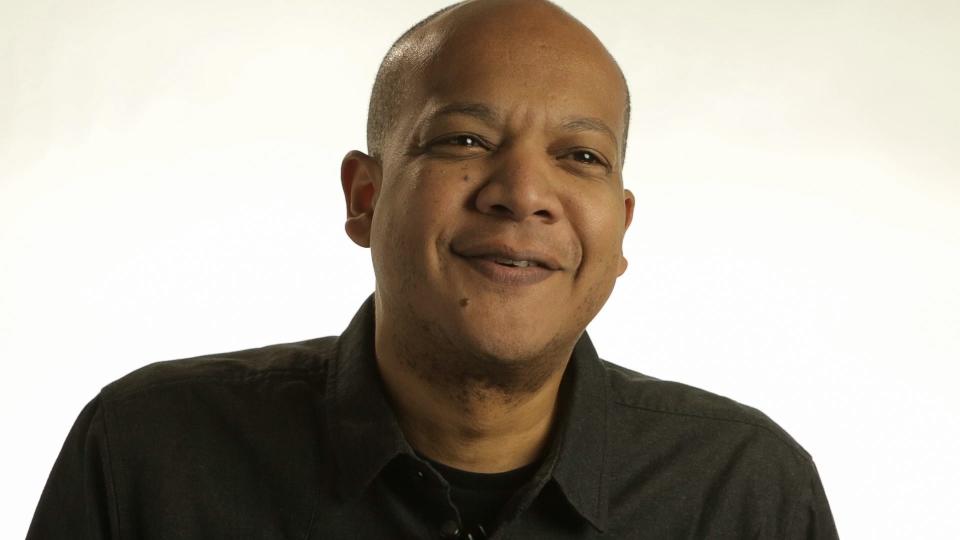Restoring voting rights is an important step in rehabilitation process
- Oops!Something went wrong.Please try again later.
Some of my earliest memories about voting were from the 1976 election, when I was just a little kid. My brother and I were polar opposites when it came to beliefs, but we loved talking politics. Our mom always told us not to fight, but we weren’t fighting, just discussing.
Thirty years later, I found myself watching Barack Obama’s election from a very different place — the TV room in the prison where I was incarcerated.

Looking back, it’s kind of funny how engaged we were. People were thinking about the election, talking about it. I had a chart predicting which states Obama would win, and only got one wrong. I remember the other Black guys in the TV room cheering and crying when the election results came through. We were so engaged, even though none of us in the room had been allowed to vote.
Now, we’re taking the first steps to change that story for formerly incarcerated people in Washington. Because of a new law that went into effect this year, Washington now restores voting rights immediately when you return home from prison. People with past felony convictions used to be barred from voting while on community supervision, and could lose our rights because of court debt. Now, any citizen not in prison for a felony can vote — that means more than 20,000 new voters can now participate in the 2022 election.
Voting has always been important to me, but now it’s even more important. Formerly-incarcerated people like me are being affected by the laws that our representatives are making, and we want to advocate for the help and support our community needs. The results of elections really affect incarcerated people, especially with things like sentencing laws and electing judges.
Most of the people elected today don’t understand what their impact is on us. I remember a friend telling me about a judge who focused on his one missing blood pressure check instead of his record of good behavior, clearly not getting how miniscule it was or considering how a bad decision could change my friend’s life. When voices like ours can actually be heard, our votes can really make a difference.
When I was incarcerated, it was really difficult for me and my family. My brother was a police guild president, and he passed away while fighting my case. After I returned home to Bremerton, I felt very disconnected. It was hard to find a job, hard to spend time away from family, and hard to find housing (I had to live in a hotel). There were so many ways that things were against me.
When people feel involved in the community, we are better as a community. When you are separated, when you can’t do this or that, it takes away some of your dignity. All the little separations make you feel less than.
After I returned home from prison, I started doing peer counseling for people in recovery, working with the Department of State Services and doing anything that could help get us a “yes” where we always get a “no.”
That’s why I remember feeling so glad when my voting card arrived; it was pretty special. It was made doubly special this year because the Voting Rights Restoration Bill was the first bill passed by my representative, Tarra Simmons, who is believed to be the first formerly incarcerated legislator in the U.S. It meant a lot to hear her case, see her go through law school, and support her all the way to being a legislator. Seeing those positions won by people who have gone through the same things that you have…it makes you want to see what more you can do.
Voting rights restoration is the first step towards making that hope real for people like me who have been impacted by incarceration. If you are living out and about in Washington, don’t sit this election out — you can register to vote right now. Make it a thing, talk to your family, get people engaged.
Impacted people like us should be excited this year because we can finally be involved in the process. We’ll be able to see what it’s like when people are held accountable, to see how they will treat people who are engaged instead of overlooked. We’re a healthier community when more people have a say and when people are paying attention. We are your voters; we are your citizens.
Julian Saucier is a peer recovery specialist and activist with the Washington Voting Rights Restoration Coalition. He lives in Bremerton.
This article originally appeared on Kitsap Sun: Your turn: Washington state restoring voting rights after prison

